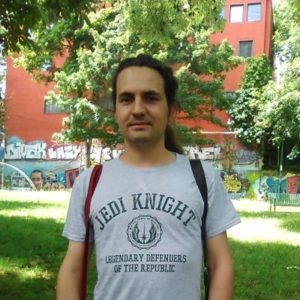Quentin Feltgen has studied Statistical Physics at the Ecole Normale Supérieure de Paris. He devoted his PhD thesis on the topic of language change, in the Laboratoire de Physique Statistique at the ENS, under the joint supervision of Jean-Pierre Nadal and Benjamin Fagard. Since then, he has worked at the ICM (Paris Brain Institute) on decision-making, and at the Université Sorbonne Nouvelle on the ANR research project Pro-Text, studying the statistical regularities of the bursts of language production in typing tasks. He is also working on the dynamical systemic organization of language over time, to which he will devote an upcoming three-years project at Ghent University.


